Change has swept across the globe, including here in Hawaii, one of the world’s premier tourist destinations. It often seems like the idea of simple vacation pleasures has been lost. Being very long time Hawaii residents, we don’t necessarily see everything the way visitors do. So we had to travel halfway around the world to see firsthand what some visitors were talking about.
Where we encountered anti-visitor sentiment.
What happened took us somewhat by surprise. On the other hand, living in Hawaii, we should understand both sides. An incident in Southern Spain drove home some points about Hawaii.
Spain, like Hawaii, has been grappling with rising anti-tourist sentiment. It seems all too similar, given tensions that have surfaced in the islands. Both destinations, renowned for their beauty and popularity, are witnessing residents pushing back against an overwhelming long-term influx of visitors they claim makes their homes “unlivable.”
In Spain, protesters in tourist hotspots like Malaga, where BOH editors headed, have been vocal, telling tourists to “go home” and decrying, among other things, the transformation of neighborhoods into tourist accommodations. This unrest is mirrored in Hawaii, where residents face pressures related to tourism, the most recent aspect of which is related to housing claimed for vacation rentals, allegedly driving up living costs and helping fuel discontent.
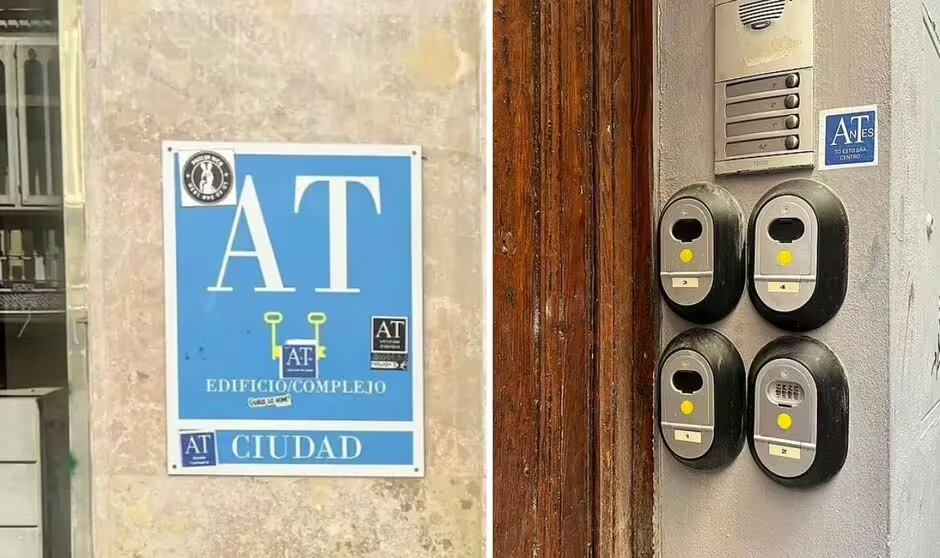

Both in Hawaii and Spain, the core issue stems from the rapid expansion of global tourism, which, while economically beneficial, has escalated to the detriment of residents. The conflict highlights a growing global challenge in tourist destinations: balancing economic gain from tourism with maintaining the quality of life for residents.
Here in Hawaii, communities are advocating for measures to curb the adverse effects of mass tourism, seeking sustainable solutions that support both the local tourism-based economy and the residents’ rights to more affordable and enjoyable living conditions.
These efforts range from curbing vacation rentals, implementing visitor fees, creating visitor education campaigns, limiting visitors in certain areas, and encouraging alternative destinations within Hawaii. One thing everyone shares in common is a desire to see Hawaii’s marine life flourish and excessive wear and tear on Hawaii’s fragile and inadequate infrastructure be mitigated.
In the end, we diverted to France.
Having encountered far too much visitor push-back in Andalusia, Spain to feel comfortable, it turned out to be easier to head towards France. We did not encounter that same anti-visitor sentiment there.
“We just returned from a trip overseas. A year ago, we would never have thought of going anywhere but Maui. We didn’t miss Maui like we thought we would! Hawaii will have to wait…Governor Green must be thrilled.”
Comment from Maleko, a frequent contributor to BOH.
Many Hawaii residents seek a more balanced approach to tourism.
There is a resounding call from many in Hawaii for responsible tourism, which includes returning Hawaii visitor numbers to lower, more sustainable levels from at least a decade ago and implementing more stringent environmental protection policies. Despite their limited resources, Hawaii’s government and the Hawaii Tourism Authority are rethinking how tourism is managed, including reservation systems for popular destinations and fees for visitors to help fund local infrastructure.
Other places around the world are in the same situation. Consider Florence, Italy. A city of 400,000 people receives 4 million visitors annually. Everything suffers because of this, including the environment and the impact on infrastructure and historical sites.
Economic revival is crucial to Hawaii.
In the end, however, that can’t be the only thing that matters. Thus, there is a sentiment of dissatisfaction among some visitors, while at the same time, there can be resentment towards visitors by residents. The situation is at times palpable, as this comment confirmed:
“We saw and felt it in our latest trip to Kauai in 2023. Residents told us it was nice to have the beaches and roads to themselves during the Covid shutdown. They got a taste of something they liked and won’t forget it. Resentment quickly set in after Covid.”
Frequent BOH commenter
Hawaii must reset its tourism model.
Moving forward, the challenge will be to find some sustainable balance that respects both the economic needs and the social and environmental concerns of the Hawaiian islands. The situation continues to offer Hawaii an opportunity to lead as a model for other tourist-heavy global destinations. The question remains whether Hawaii is capable of doing so.
Hawaii’s tourism surge caught everyone by surprise.
In the past two years, Hawaii experienced a dramatic surge in tourism. Europe and other global destinations started blooming somewhat later. The sudden, rapid, and unexpected influx brought a myriad of challenges, from overwhelmed local infrastructure and environmental strain to the social impact on communities unprepared for the pace of visitor levels.
Traditionally reliant on tourism economically, Hawaii finds itself inadequately navigating any sense of balance between welcoming tourists and ensuring the sustainability of its natural resources and the well-being of its population. This highlights the vulnerabilities and strengths of Hawaii’s tourism-dependent economy, prompting discussions and plans for change in responsibly managing the future of tourism.
In this regard, Hawaii was not unlike other places, but perhaps the problems were more evident in our very small workforce. When Hawaii visitors returned in large numbers after COVID, restaurants, hotels, and other service-oriented businesses struggled to meet demand due to this labor shortfall that, to this day, isn’t resolved. This not only hindered Hawaii’s ability to operate at total capacity but also had a significant impact on the quality of service.
The situation also highlighted the need for more sustainable employment in Hawaii travel, which might help attract and retain workers to ensure a robust and enduring situation.
Hawaii’s unprecedented price increases caught visitors off-guard.
Visitors to Hawaii have indeed faced enormous cost increases, particularly in accommodations. Several factors contribute to this trend. First, the high demand, post-Covid, coupled with the limited accommodations supply, drove prices up. It seemed that no amount was too high to charge. Price gouging was a definite factor. In addition, Hawaii’s taxes on accommodations add another 18% to the cost.
Inflation and the cost of operations exacerbated that situation throughout the industry. Both global inflationary pressures and those unique to an island economy caused costs to become more expensive, which was passed on to tourists. Hawaii hotels, vacation rentals, and restaurants continue to face significantly higher costs across the board.
Now it’s your turn to comment about traveling in Hawaii and elsewhere and your experiences of finding welcome and Aloha.
Get Breaking Hawaii Travel News
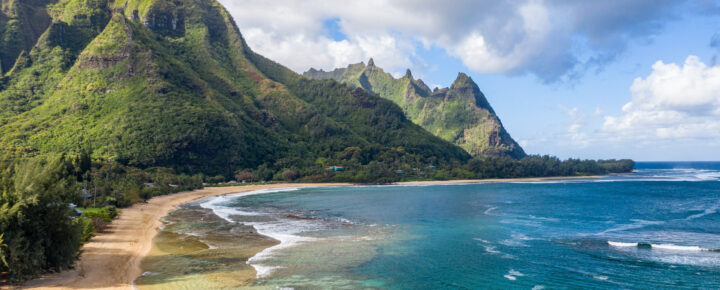



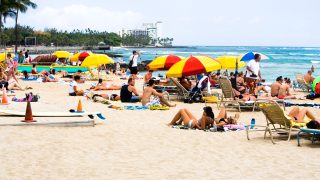
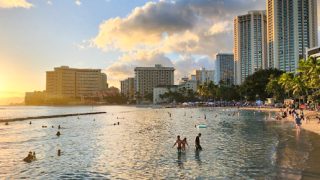
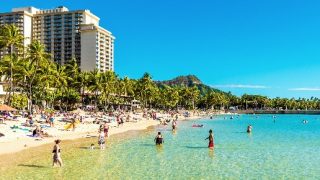
I live in Las Vegas and grew up in Boston and only met 2 or 3 people that came from Hawaii.Moving to Las Vegas and working at a popular grocery store that is popular for people from Hawaii I have noticed a Nationalistic and weird view to “defend Hawaii” or “Locals only” on bumper stickers and shirts and the endless amount or the like.Like why are there so many people from Hawaii in Las Vegas? Maybe something is wrong in Paradise?
Las Vegas is well-known as the “Seventh Island”, and has been a place many young people have moved to (it’s been a generation or two or three since Hawaiian Gardens in LA). Jobs are easy to get, and housing is cheap. It’s also freaking hot halve the year and cold a few months in winter, but … I have a friend who lives on Oahu. The 20-something GF of one of his sons (she is born and raised on Oahu) has never been to any other island, but has been to Vegas a half dozen times. As for the ethno-nationalism, you may have noticed that this is the in-thing these days, but it’s always been around.
Perhaps the Hawaiian people would like to preserve their language and culture (denied to them for years), regardless of where they choose to live. Perhaps they’re proud of their state.
My husband and I just returned from 8 days in Maui…our fourth visit to the island. We last visited in September of 2021. Obviously we love the island, and the spirit. We were treated most kindly – as usual. Mauiians have lost much, but not their spirit of aloha. They are strong, resilient and hospitable despite the circumstances.